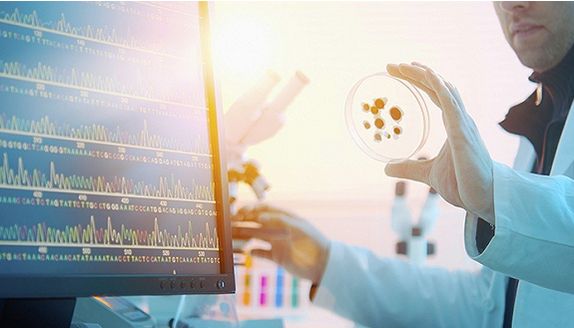Awaken the silent gene
Most genes have two working copies, one inherited from the mother and one from the father. In rare cases, however, a gene is imprinted so that the copy is silenced. It is known as genomic imprinting. If the active copy is mutated, it can lead to disease, even when the silent copy of the gene may be normal.
Angelman syndrome is caused by a mutation in one gene inherited from the mother, located in a particular region of chromosome 15, while another gene copy from the father is silenced. It is characterized by learning difficulties, lack of language, seizures, dyskinesia and an unusually cheerful personality.
So can we turn on the paternal gene? In a new research paper published in the journal Nature, Arthur Beaudet, PhD, a professor of molecular and human genetics at Baylor College of Medicine and a clinical geneticist at Texas Children's Hospital, and colleagues address that question.
Angelman syndrome occurs when a baby inherits a mutated copy of the imprinted gene UBE3A from its mother. The baby also has a parent copy of the UBE3A gene, but it is silenced by a long piece of RNA called the antisense transcript of UBE3A.
In earlier experiments, Dr Ben Philpott of the University of North Carolina showed that a drug called topoisomerase, which activates a copy of the parent UBE3A gene, is toxic on its own and affects not only UBE3A but all long genes as well.
When Beaudet's graduate student Linyan Meng was writing a dissertation on Angelman syndrome to try to address the problem, Dr. Thomas Cooper, a professor of pathology and immunology at Baylor College of Medicine and a member of the dissertation defense committee, told Meng that He is working with a company called Isis Pharmaceuticals, which has antisense oligonucleotides that turn off antisense transcripts that silence a copy of the parent UBE3A gene. Meng created mice in which the antisense transcription was "suppressed" while the paternal UBE3A gene was turned on.
"If you block the antisense transcript, you can turn on the paternal copy," says Beaudet. The treatment also works in cells in the laboratory as well as in live animals. The effects of antisense oligonucleotide injection persisted for 16 weeks.
"The molecular data clearly showed that we switched on the paternal copy of UBE3A," Beaudet said. But it's not clear to what extent we can reverse the behavior abnormality."
Some mouse studies have shown that this treatment appears to reduce the cognitive deficits associated with Angelman syndrome. But the researchers say more tests are needed.
"For the first time, we have developed a sequence-specific and clinically feasible method to activate the expression of the paternal UBE3A allele," the authors say.
In the future, researchers hope to see what happens if the gene is able to make more proteins, Beaudet said.
If laboratory and animal studies continue to show positive results, he expects to launch a study in children with Angelman syndrome in the next two to three years. It may also be possible to adapt the technique for other diseases caused by imprinting mutations.




